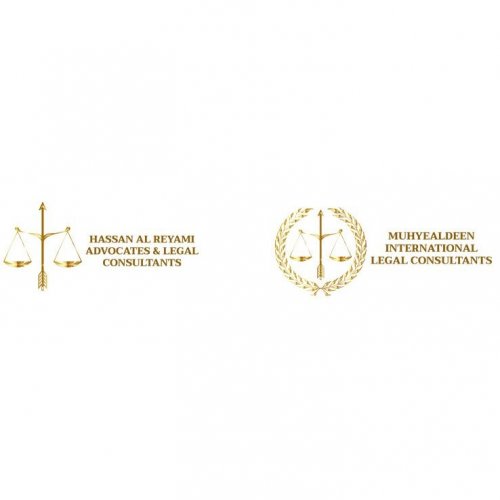Best Estate Planning Lawyers in Abu Dhabi
Share your needs with us, get contacted by law firms.
Free. Takes 2 min.
List of the best lawyers in Abu Dhabi, United Arab Emirates

The Black Robe For Legal Consultancy & Debit Collection
1 hour Free ConsultationAbout Estate Planning Law in Abu Dhabi, United Arab Emirates
Estate Planning Law in Abu Dhabi, United Arab Emirates is an important yet complex part of legal practice that primarily deals with the management and distribution of an individual's property after their demise. This kind of legal planning takes into account rules and regulations pertaining to Wills preparation, Trusts, inheritance, taxes, and other relevant aspects.
Why You May Need a Lawyer
Legal advice is often required in the domain of Estate Planning to ensure a smooth transition of assets and to mitigate any legal or financial mishaps. Whether you are drafting a Will, establishing a Trust, planning for estate tax, handling probate procedures, or resolving inheritance disputes, a competent legal professional can provide the precise guidance required to successfully navigate these intricate processes.
Local Laws Overview
Local Estate Planning Laws in Abu Dhabi, UAE, are significantly influenced by principles of Sharia law. Sharia Law, applicable to Muslims, stipulates a fixed succession system, which may not always align with one's personal preferences. However, for non-Muslim expatriates, the UAE law permits the application of their home country law through Wills made in accordance with the UAE regulations. It's important to note that unregistered Wills may lead to the automatic application of the Sharia law succession system. It is, therefore, essential to work with a professional lawyer who can guide you in creating a sound estate plan conforming to UAE laws.
Frequently Asked Questions
1. Can expatriates own real estate properties in Abu Dhabi, UAE?
Yes, expatriates can own real estate in designated investment zones in Abu Dhabi.
2. Can a non-Muslim expatriate create a Will in UAE?
Yes, non-Muslim expatriates can create a Will in accordance with UAE laws, where they can specify their home country law to be applied on their assets after their demise.
3. What happens to an estate if there's no Will?
Without a valid Will, Sharia law principles would be applied, which prescribe a fixed succession system.
4. Can I avoid taxes on my estate?
Currently, there is no estate tax or inheritance tax in the UAE. However, it’s advisable to discuss with a legal professional regarding the tax regulations of your home country.
5. What does the probate process involve?
Probate involves the execution of a Will after the death of the individual. This includes distributing the assets as specified in the Will, paying off any debts, and winding up the estate.
Additional Resources
The Abu Dhabi Judicial Department, the Department of Economic Development, and the Real Estate Regulatory Agency can provide helpful information on legal and regulatory issues concerning estate planning. It's also advisable to access reliable UAE legal portals for valuable insights.
Next Steps
If you need expert legal help in Estate Planning in Abu Dhabi, UAE, consider consulting a law firm specializing in this area. Initiate a discussion on your estate planning needs, ask them to explain the local inheritance laws and procedures, and seek assistance in drafting a valid Will or trust document in line with UAE laws. Ensure you have a comprehensive understanding of what your plan encompasses, its legal implications, and how it will be enforced.
Lawzana helps you find the best lawyers and law firms in Abu Dhabi through a curated and pre-screened list of qualified legal professionals. Our platform offers rankings and detailed profiles of attorneys and law firms, allowing you to compare based on practice areas, including Estate Planning, experience, and client feedback.
Each profile includes a description of the firm's areas of practice, client reviews, team members and partners, year of establishment, spoken languages, office locations, contact information, social media presence, and any published articles or resources. Most firms on our platform speak English and are experienced in both local and international legal matters.
Get a quote from top-rated law firms in Abu Dhabi, United Arab Emirates — quickly, securely, and without unnecessary hassle.
Disclaimer:
The information provided on this page is for general informational purposes only and does not constitute legal advice. While we strive to ensure the accuracy and relevance of the content, legal information may change over time, and interpretations of the law can vary. You should always consult with a qualified legal professional for advice specific to your situation.
We disclaim all liability for actions taken or not taken based on the content of this page. If you believe any information is incorrect or outdated, please contact us, and we will review and update it where appropriate.









